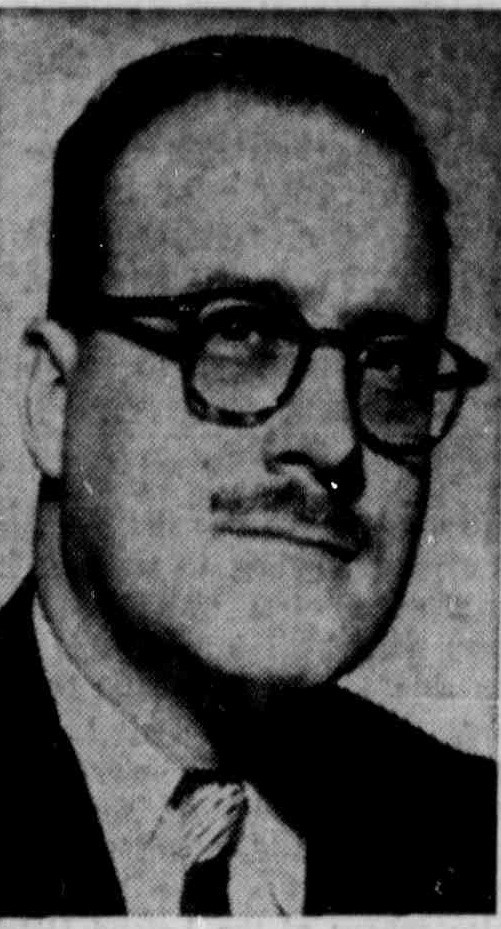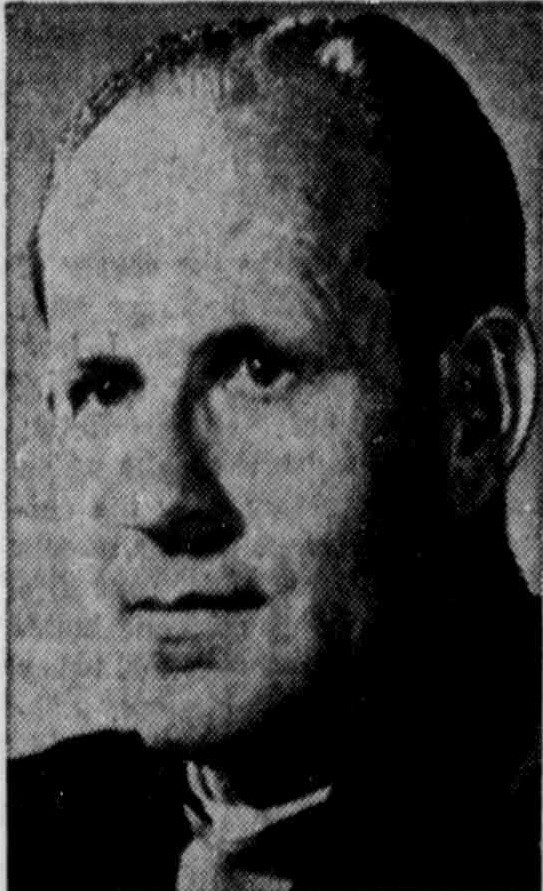The Crowe affair
An important part of U of W’s history continues to unfold
History professor Harry S. Crowe (above) was unjustly fired in 1958 for his political and religious opinions after a private letter was intercepted by United College and U of W principal Wilfred Lockhart (below). 

Photos supplied by Winnipeg Tribune Archives
More than 60 years ago, the University of Winnipeg (U of W), then known as United College, was the centre of an important event in Canadian labour history, specifically with regards to academic freedom.
Many present-day U of W students may not know the story of history professor Harry Crowe’s firing, which consolidated the Canadian Association of University Teachers (CAUT) and led to mass resignations from faculty members in solidarity.
In 1958, Crowe, himself a United College alum, wrote a letter while on sabbatical to a colleague, in which he expressed concern about a potential Conservative federal election victory and criticized his institution and the United Church. Somehow, this letter ended up on the desk of Wilfred Lockhart, the principal of United College, who later became the U of W’s first president. Crowe was quickly dismissed.
This prompted numerous faculty members to resign in solidarity and CAUT’s first important investigation, which found that Crowe’s dismissal was unjust. It led to the strengthening of academic freedom for university instructors across Canada. Crowe, however, was never reinstated and finished his career at York University.
Dr. Hugh Grant, dean of the U of W Faculty of Business and Economics and professor of economics, says this event was a defining moment in U of W’s institutional history.
“I do think there’s a case to argue that if you lose a third of your senior faculty at a crucial time, it has an impact,” Grant says.
“It definitely marked United College for a long time and is usually cited as a watershed in academic freedom in Canada.”
Grant emphasizes that academic freedom is still an important and relevant issue today. He points out two facets of academic freedom: the rights of university instructors and the autonomy of the institution itself.
“I do think there is some concern in universities today about autonomy from provincial granting agencies,” Grant says.
Kevin Smith, president of the University Club, has been involved in commemorating this chapter of the university’s history. He purchased six metal crow sculptures from local artist James Culleton to adorn the University Club, located in Wesley Hall.
“I was looking for some design motifs to include in the club space to add atmosphere,” he says. According to its website, the University Club “is open to any full-time employee of the University of Winnipeg” and is home to a dining room, pub, lounge, art collection and library.
Smith says the crows are an homage to Crowe – a clever play on his name.
“I am aware of the significance of the crow to the University (of Winnipeg) Faculty Association, because they use a flying crow as a mascot,” Smith, who is also the university’s manager of safety and health, says.
“As far as the importance of commemorating Harry’s chapter of the university’s history, I suppose vigilance is important in maintaining freedom of thought and expression in any setting, but especially within an institution of higher learning,” he says.
“What better icon than a crow?” Smith asks, adding that they are “eternally watchful, intelligent and capable of flight.”
Published in Volume 75, Number 09 of The Uniter (November 12, 2020)






